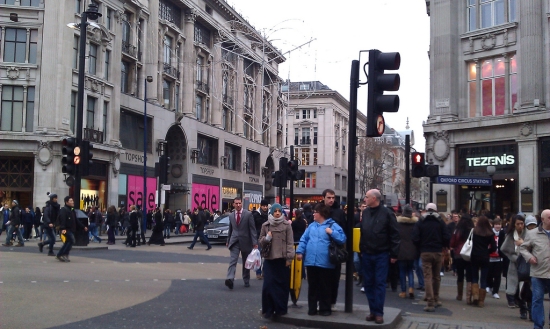With no change in Britain’s economic outlook, the looming threat of a triple dip recession is becoming increasingly likely. Three retail administrations within the first month of 2013 have added greatly to these fears, as it suggests that yet more retailers could be in danger of administration should the financial situation take a further downturn. This, of course, is bad news for consumers, employees and the retail property market alike.

According to business law firm Bond Pearce, employment in the retail sector has so far defied expectations by climbing in the fourth quarter of 2012 – despite the fact that a number of chains were fully expecting to enter administration should Christmas sales prove too weak to make any headway in company debt.
However, the firm’s Retail Employment Monitor indicates that this trend will not continue into 2013, with many employers expected to begin shedding staff within a matter of weeks.
Compared to the fourth quarter in 2011, employment in the retail sector rose by 0.6 per cent in 2012, driven largely by stores taking on part time and seasonal staff as opposed to creating full time positions.
This could possibly be due to the number of stores introducing pre-Christmas promotions – a relative anomaly in the festive season – as well as part time positions being more economically attractive than full time roles for cash strapped chains.
This rise in retail employment, regardless of the type, is hugely surprising given that the overall number of stores eligible to participate in the Monitor fell by 573 since December 2011, which equates to a loss of 3.6 per cent. Since the Monitor was launched in October 2008, this is the greatest annual loss in store volume recorded.
Head of Retail Employment at Bond Pearce, Christina Tolvas-Vincent, believes that the problems on the high street will worsen once again this year with devastating consequences for a number of chains and their employees.
She says; “After a lacklustre Christmas, the New Year has started badly for retailers; well publicised failures such as HMV, Jessops and Blockbusters have yet again placed the spotlight on the struggling high street.
“This will have an even greater impact on store numbers that are already falling at the fastest rate for over four years.
“With economists claiming that more companies will fail before the UK economy can begin to recover, retailers must continue to adapt to the harsh market conditions and hope that their strategies for survival, and even growth, will stand them in good stead.”
Although the fourth quarter figures for employment seem encouraging, the Monitor also revealed that a growing percentage of employers intend to cut staff numbers in the current quarter in a bid to save on overheads.
This figure is increasing year upon year as the situation on the high street worsens, with half of participating retailers announcing their intentions to make cutbacks in coming weeks compared to only a third at the same time last year.
Director General of the British Retail Consortium (BRC), Helen Dickinson, believes that the Government could be doing more to help retail companies retain staff members, stating that the fourth quarter figures indicate a continuing desire to “invest in people and support job creation” by retailers.
She continues; “Half of our sample intends to decrease staffing levels during the first quarter of this year and only four per cent plan to increase them.
“This trend is to be expected at this time of year due to reductions in temporary seasonal staff, but the rate is higher compared with last year and further highlights testing times still to come.
“Supporting retail sector investment and employment is essential to economic recovery – the Government can help by freezing business rates in April.”
With no signs that consumer confidence will grow this year, and the possibility of further administrations on the high street, it appears that 2013 will be just as gloomy for the retail industry as 2012 was.
Yet with retailers continuing to support the creation of jobs and attempting to retain employees, perhaps there is hope that some of Britain’s most popular brands will emerge from the current economic difficulties relatively unscathed.
Do you think freezing business rates would have a positive effect on the high street and the retail property market, or will only a full economic recovery and turnaround in consumer confidence save some of the hardest hit retailers?